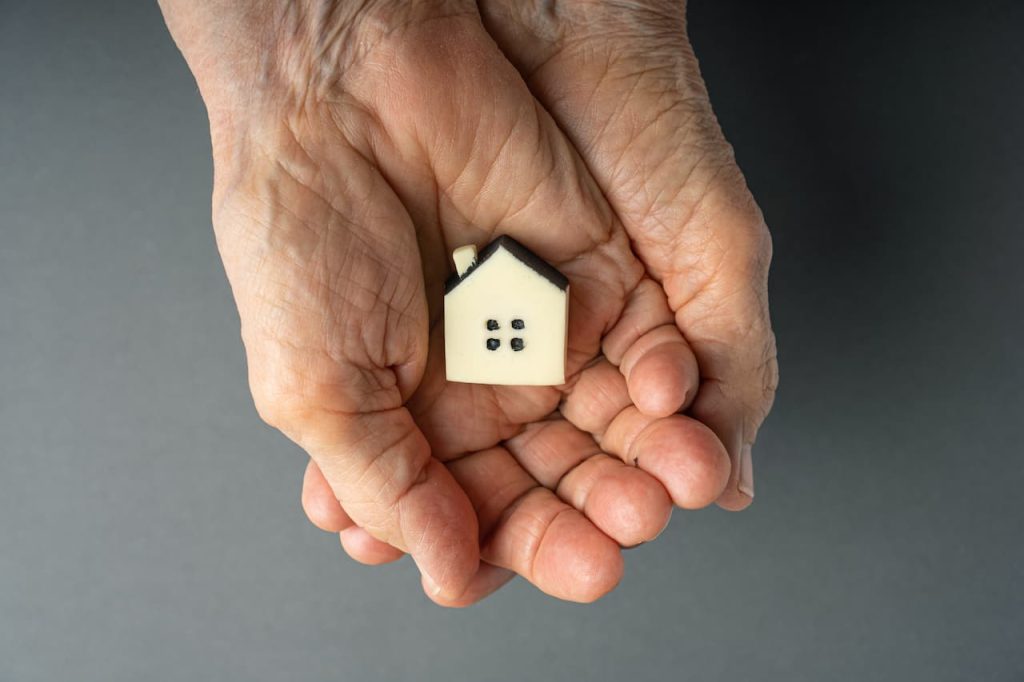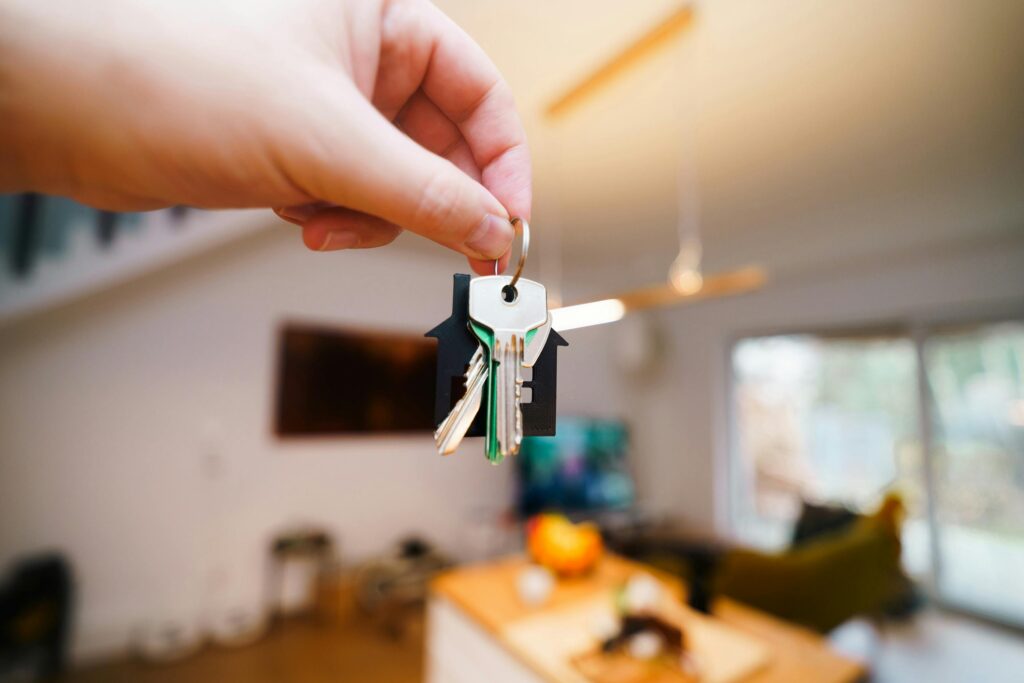Can You Move into an Inherited House Before Probate?

Estimated reading time 7 minutes
Inheriting a house may be viewed as a lovely gesture in a time of grief but it can also be one filled with stress and a little apprehension. Whilst this gift from a loved one may provide some financial stability, or give you a new place to call home, there is much that needs to be done before you can settle down.
When anyone dies, their estate must be settled for tax purposes and their will fulfilled to ensure their wishes are met. This could mean inheriting a property, it could mean being gifted cash or it could simply mean paying any taxes due.
Commonly, property is left in a will, often with specific instructions on how it should be looked after and whether it should be kept or sold. When inherited, this can be seen as a tremendous gesture, especially if you require help getting your foot on the property ladder. Unfortunately, it isn’t quite as simple as taking the keys and moving in though. You may have inherited the house on paper but can’t move right in until probate is completed. In fact, you can’t do much with an inherited house until probate is completed and the ownership of the house is transferred.
What is probate?
Probate is the legal right for someone to deal with the estate of a deceased individual. It isn’t something that comes into effect immediately. The executor of the will needs to apply for a grant of probate from the probate registry. Once done, the requests of the deceased can be conducted and the estate settled as their will dictates. This could include what should happen with property, who should receive money, settling debts, and paying taxes.
It can be a slow process. Probate can take up to a year to complete, meaning property is often left empty for long periods after the death.
Can you live in an inherited house before probate?
You may have been left a house in the will and be keen to either move in or sell it on. Inheriting a property from a relative can be an emotional time, part of you may wish to remain in the home and cherish the memories it brought, part of you may wish to draw a line under that chapter and move on. If you are the beneficiary of the property and probate is not yet complete, you may be wondering whether you can still class the home as your own.
You can, and you can’t. It all depends on what the executors decide is the best solution. They have ultimate power over how the will is handled, and should property be involved, they may decide it best you live there immediately, or may think it better that you wait for probate to complete. It also depends on how many people are set to inherit the house. If, for example, a father left his house to three sons, it may not necessarily be seen as fair for one to move in and start calling it home while the other two miss out.
At this stage where probate is not complete, there is no legal owner of the property as such, but where there is one beneficiary, it may make sense for the executor to authorise the property to be occupied right away. This then means any bills and maintenance can continue to be taken care of. Once probate is granted and the wishes of the deceased are complete, ownership will move to you.
Without the consent of the executor, the inherited property cannot be lived in until probate is complete. However, if the will says occupancy is to be taken upon death, the executor should grant access or allow occupancy right away.
Can I live in a property I co-own before probate?
If you co-own the home, it is likely that full ownership passes to you in the will. If it doesn’t, you should still expect to be allowed to remain living there until probate is complete.
Can I move my things into an inherited house before probate?
Before probate, you can’t do much at all, and that includes moving things in and taking things out. If you have been granted the right to occupy the property, you may be able to move in, but it would be advised that you don’t remove any belongings as they may make up part of the estate that is being distributed.
Once probate is complete and all inheritance has been finalised, you can move things in and out as you wish.
What am I allowed to do with an inherited house before probate?
If you have been permitted the right to occupy the house before probate, you must follow specific rules. A breach could see your right to occupy withdrawn.
Restrictions vary but will commonly include:
Significant changes to the property. Even though you may inherit the property once probate is complete, you shouldn’t make any changes to the home that could alter its value or its general appearance before probate is complete. The property should be maintained as far as being kept in good condition, but this should not extend to redecorating or building work.
Granting of access. As probate is worked through, valuations may need to be conducted. Executors must be allowed access, often at short notice, so they can get probate completed as quickly as possible.
Keep up with payments. Whilst mortgage payments may be paused during probate, other costs will not be. Utility bills, council tax, home insurance etc. will all need to be paid. You should also factor in any costs for repairs and maintenance that will stop the house from deteriorating.
Comply with all probate rules. Probate is not a fast process, so it becomes easy to forget it is being worked through in the background. This means you may find yourself surprised when the executor needs access or takes away specific household items. They are simply working to the words of the will and carrying out their duty. Failure to cooperate could see the inheritance of yours, and that of others impeded.
What happens to the mortgage if I live in an inherited house before probate?
If you inherit the property and are granted the right to occupy it before probate is completed, you may be granted a grace period that suspends the mortgage repayments temporarily. Once probate is complete, mortgage payments will resume. It is worth noting that the lender will want to ensure you pass their affordability checks and credit checks before they issue a mortgage. If you don’t, you may have to look at how to sell your house fast so the mortgage can be cleared. If there was no mortgage, you could just move straight in.
Will I have to pay inheritance tax on the inherited house?
You might do. It all depends on the value of the property. There is a £325,000 tax-free allowance on inheritance. Once an estate exceeds that amount, inheritance tax is due. However, should you be the spouse or partner of the deceased, a property can be passed on as a gift with no tax due on it.
If you have been living in an inherited house before probate and have ownership passed on to you, affordability may often be an issue if there is a mortgage outstanding on it. At Bettermove, we relieve you of this stress with our compassionate team helping you sell inherited property fast. With no fees or surprise charges, you can sell your property for free, allowing you to benefit from receiving the full cash amount you are offered. Contact our team today and see how we can help you sell an inherited home in as little as seven days.



